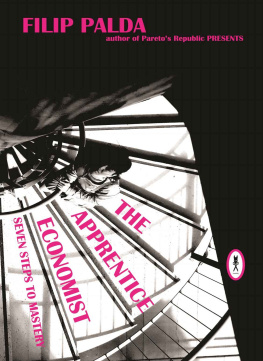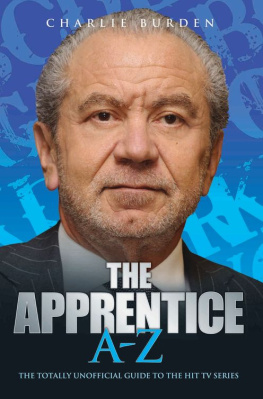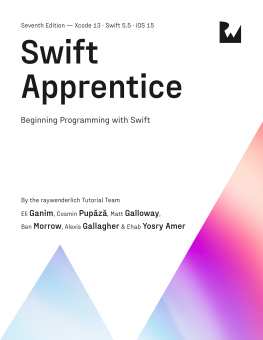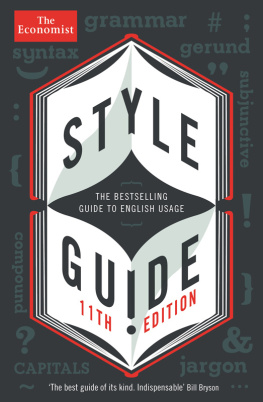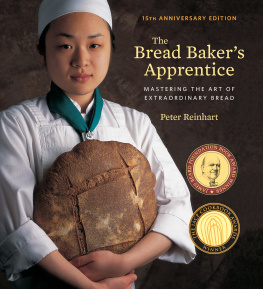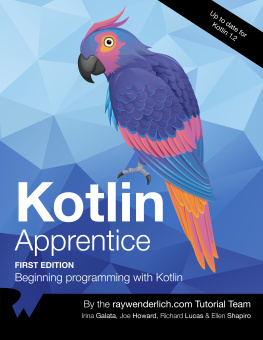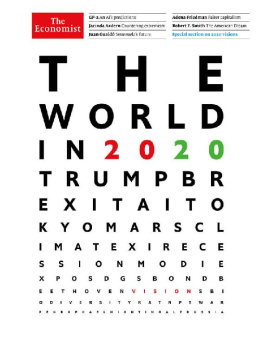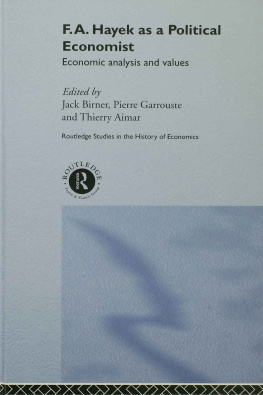the apprentice economist
seven steps to mastery
Filip Palda

C OPYRIGHT 2013 BY F ILIP P ALDA. All rights reserved. No part of this book may be reproduced in any manner whatsoever without written permission except in the case of brief passages quoted in critical articles and reviews. Students may extract longer segments for school essays.
Published by Cooper-Wolfling . None of the advisory board of Cooper-Wolfling are responsible for the opinions expressed in this text, which remain the responsibility of the author.
Editor: J. Kristin McCahon
Typesetting and final design supervisor: Le Chevalier Grimaud De Rompidrac
Proofreader: Mirja van Herk
Cover design and typesetting: Stare Zamecke Schody Studios. Set in Minion Pro.
About the cover: The cover represents the Ascent to Knowledge and is the particular idealization by trans-conceptual artist Hanka Fecit. The cover model was provided by Goldpidgeon Productions .
Palda, Filip, 1962
The Apprentice Economist / Filip Palda.
Includes bibliographical references.
ISBN 978-0-9877880-4-7
T HIS BOOK IS CERTIFIED TO BE SUBSIDY FREE. N OT ONE DOLLAR
OF TAXPAYER MONEY IN THE FORM OF SUBSIDIES OR DEDUCTIONS
HAS GONE INTO ITS PRODUCTION.
WWW.APPRENTECON.COM
About the author
F ILIP P ALDA EARNED his Ph.D. in economics at the University of Chicago.
Dedication
TO MY MOTHER, THE ORIGINATOR AND THE ORIGINAL
Contents
About the author Dedication 1 PREFACE 2 SUBSTITUTION 3 TIME 4 CHANCE 5 SPACE 6 EQUILIBRIUM 7 GAMES 8 CONTROL 9 EPILOGUE
PREFACE 1
M ASTERING ANY DOMAIN OF KNOWLEDGE is hard. Some psychologists estimate it takes about three thousand hours of concentrated study simply to start being able to contribute in a meaningful way to your chosen field. Assuming you could devote a maximum of eight hours a day to perfecting yourself, then under these conditions you would have to study almost three years, and more likely five or even seven. Seven years is the time it traditionally took to pass from being an apprentice to a journeyman in trades such as instrument making, goldsmithing, surgery and barbering. The Beatles may just have spent this amount of time performing, and honing their skills before their success.
Becoming a master of economics is not easy, mainly because it is a new science. Pedagogy has been a straggler in the march to understanding. First year economics classes dumb down the subject, and try to make it accessible to the many. This has the result of making it accessible to few. That should be no surprise. Have you ever heard of an easy course in bodybuilding? How about Endurance Running 101 in which you attain the toughness of a marathoner without ever breaking a sweat? The mind is like a muscle. It needs to be stressed before it can grow.
The established sciences are well aware of this. Physics courses the world over pose a challenge. So should economics. There is no short-cut to core concepts, whatever the discipline. The current explosion of wannabe economic best-sellers in popular bookstores turn their faces from this awkward fact. They seek to make economics accessible from the armchair, a topic for midnight reading, sexy, and even freakish. They appeal to the readers vanity rather than to his or her appetite for knowledge for its own sake.
To be fair, you will also find on a nearby bookshelf popular physics books which try to make that science accessible. But you will also find they are serious works that make little compromise with the readers demand for instant understanding. Physics books dont expect you to grasp all the intricacies of that science. They seek to help you understand what are the great questions in physics and how physicists go about answering them. How many popular books in economics give you that? By cravenly reducing their expositions to jokes and meretricious anecdotes, economists who try to explain their topic to the wider world are working on the assumption that the topic can only be washed down with beer and popcorn. Such an approach is unfair to the curious.
To the curious, economics may seem a fragmented science. No such confusion existed in the minds of those who founded the field. Economics was a 19th century reaction to rapid social change that made people question the value of the societies in which they lived. Was economic growth worth the upheaval to customs and mores? Did government have a role in moderating the rapid changes taking place? The answers depended on how you weighed the outcomes the modern economic system produced. Put more figuratively, economics came into being as a means of calculating whether social accounts were in balance. Did the capitalist system give workers sufficient reward for their efforts? Did communism promise a better reward system for organizing society? Such questions had seldom been asked with any force because there had been no call for the answers. For most of history people lived in static economic and social settings. Little changed. The absence of change allowed people to gradually figure out means of balancing social accounts without the aid of worldly philosophers. The need for economics arose when the world started to change too rapidly for governments to really understand where things were going. Those in power turned to economists because they were the only ones who had developed a rough but logically coherent means of thinking about how social accounts added up under different government policies.
A clear and quantifiable idea of the basis of social cohesion is why economics remains the only guide which the mass, anonymous societies of today can use to avoid blundering into depression and even chaos. Economists who think their topic is a tap-dance should seek a calling in the entertainment industry. Economics is a noble undertaking in which there is no place for the intellectual kibitzer, the gag-artist, the purveyor of trivia. If such solemnity strikes you as being excessive, think of Boozy Barley Blair in John LeCarrs The Russia House explaining in his cups that today you have to think like a hero to be a merely decent human being.
But does a heroic science call for heroic sacrifice on the part of those who would understand it, at least in its outlines? Just as in physics, there are no shortcuts to mastery in economics. But there are ways to avoid needless confusion. Some people breeze through the study of difficult topics to become masters in a short time. These are the ones we see relaxing at the bistro chatting and laughing with friends while the rest of us toil at our desks in fear of the next examination. Are they so much better than the rest of us? Yes they are. But not because of some otherworldly talent. They are better because they have a knack for getting to the heart of the matter. They know which steps lead to the heights of knowledge. They expend effort, though not needless effort.
What are these steps that can help one to master economics elegantly instead being crushed grossly by the challenge? I believe them to be seven. The first four are basic units: substitution, time, chance, and space. Each has fundamental insights that are applied in all other fields of economics. The way to snap the basic pieces together is through equilibrium analysis, which is the fifth step. Game theory is the sixth step because it draws on the first five steps but itself also makes fundamental contributions from which the first five steps can benefit. Standing seventh, at the top, is the idea of statistical control. Only once we have understood theory of economics, can we then proceed to test these notions. That is what statistical control is about.
Such a list may seem simplistic to some and may even smack of dilettantism to others. What about Ricardos principle of comparative advantage? Or Says law? How about the median voter theorem? Deadweight loss? The impression of a caf terrace approach to economics mounts as one consults the Journal of Economic Literature classifications of economic fields. There are twenty major fields, close to a hundred subfields, and over five hundred fields within the subfields. I wont even attempt to quantify the number of economic journals. Their number blooms like plankton and their nutritional value is about as hearty. How can such a massive archive be reduced to a few hundred pages?
Next page
